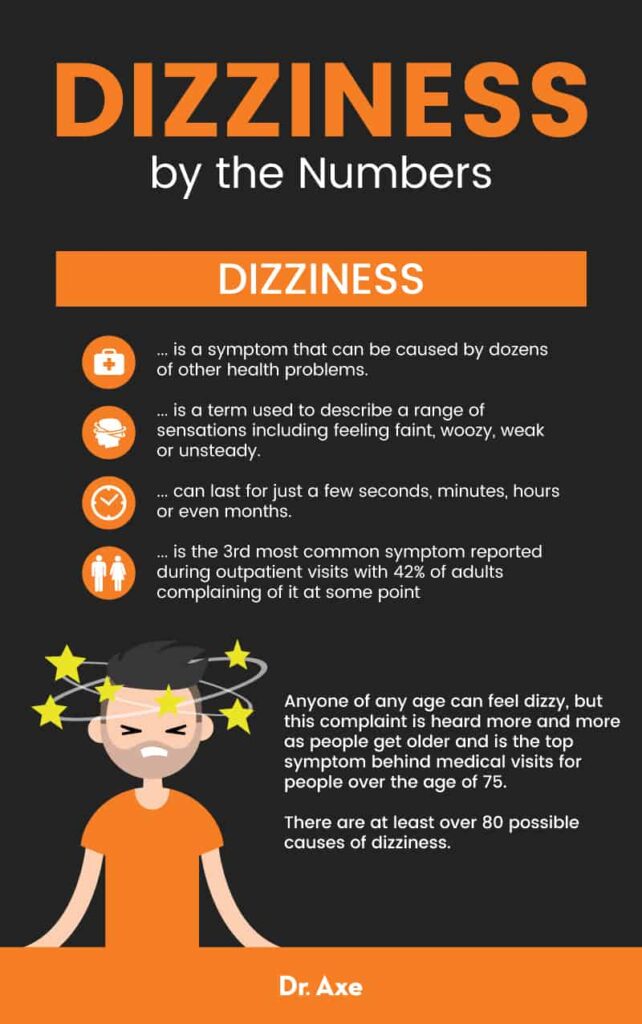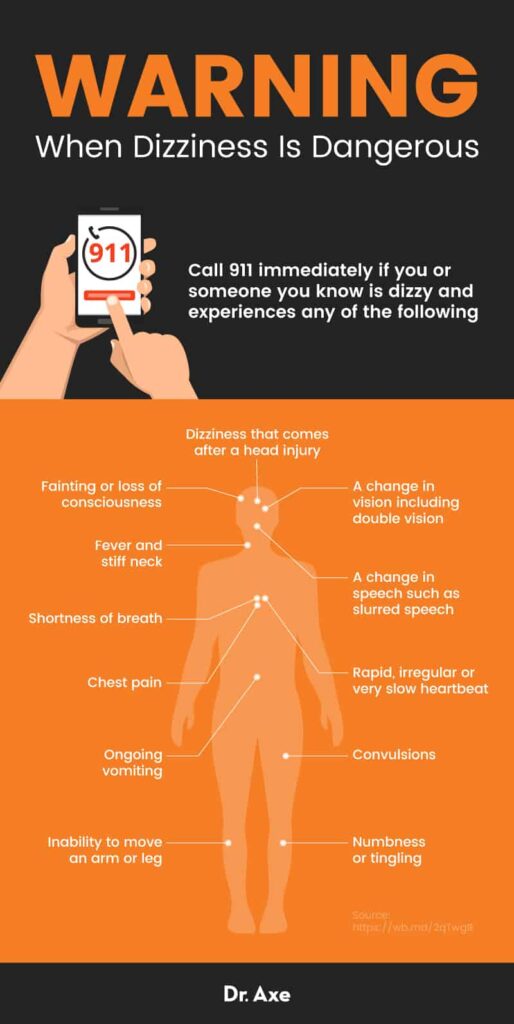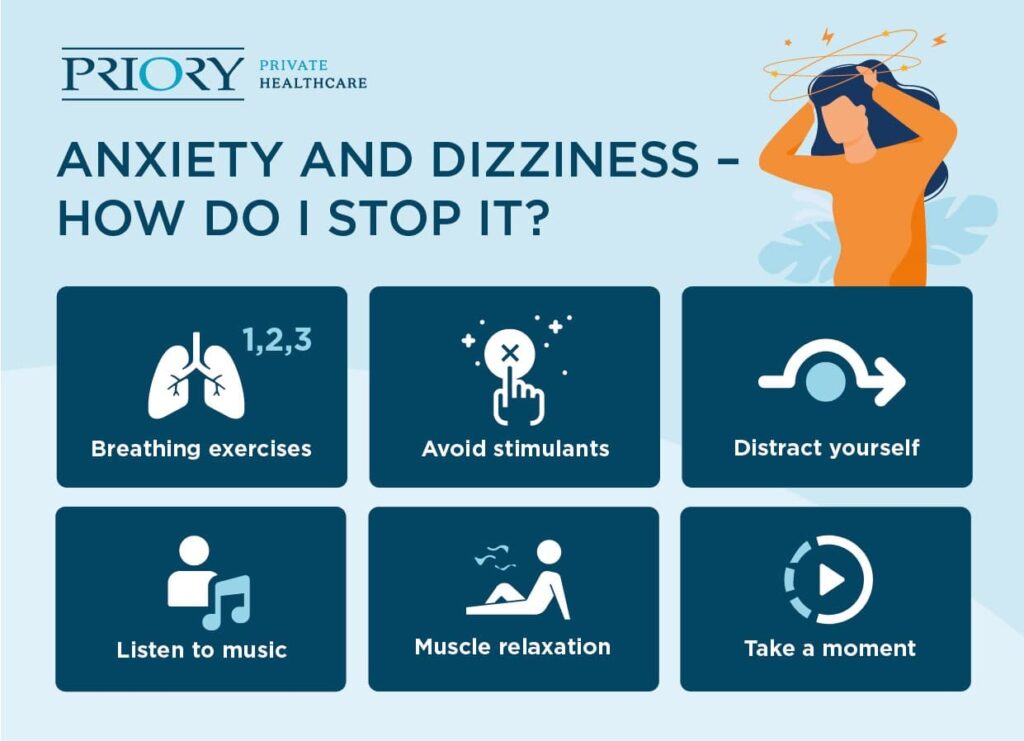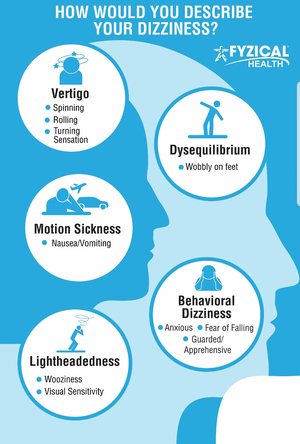Are you tired of feeling dizzy and lightheaded throughout the day? If so, you’re in the right place. In this article, we will explore some practical and effective strategies that can help you prevent lightheadedness and regain your balance. Whether it’s due to dehydration, low blood sugar, or poor posture, we’ve got you covered. So, sit back, relax, and prepare to discover the simple yet efficient steps that will keep you feeling grounded and energized all day long.

Understanding Lightheadedness
Definition of lightheadedness
Lightheadedness is a common sensation that many people experience at some point in their lives. It refers to a feeling of dizziness, faintness, or wooziness. When you feel lightheaded, you may often feel like you are about to pass out or lose your balance. This sensation can be mild and fleeting, or it can be severe and long-lasting, depending on the underlying cause.
Lightheadedness can be caused by a variety of factors, including dehydration, low blood sugar, stress and anxiety, improper breathing, poor blood circulation, certain medications and supplements, and nutritional deficiencies. By understanding the common causes of lightheadedness and implementing preventive measures, you can reduce the frequency and severity of this uncomfortable sensation.
Maintaining Hydration Levels
Importance of hydration
Hydration plays a crucial role in maintaining overall health and well-being. When you become dehydrated, your body may experience various symptoms, including lightheadedness. Dehydration occurs when your body loses more fluids than it takes in, resulting in an imbalance in electrolytes and reduced blood volume. This can lead to a drop in blood pressure, which in turn can cause lightheadedness.
Tips for staying hydrated
To prevent lightheadedness caused by dehydration, it is essential to take steps to maintain proper hydration levels. Here are some tips to help you stay hydrated:
- Drink an adequate amount of water throughout the day. The general recommendation is to aim for at least eight glasses (64 ounces) of water per day. However, individual fluid needs may vary depending on factors such as activity level, climate, and health conditions. Listen to your body’s thirst cues and drink water accordingly.
- Carry a water bottle with you wherever you go. Having easy access to water makes it more likely that you will stay hydrated throughout the day.
- Limit the intake of dehydrating beverages such as alcohol, caffeinated drinks, and sugary drinks. These beverages can contribute to dehydration and worsen lightheadedness.
- Eat water-rich foods. Fruits and vegetables, such as watermelon, cucumber, and oranges, are excellent sources of hydration.
- Consider using electrolyte-enhanced drinks or water when engaging in prolonged physical activity or during periods of excessive sweating.
By following these simple tips, you can maintain optimal hydration levels and reduce the risk of lightheadedness caused by dehydration.

Balancing Blood Sugar Levels
Effect of blood sugar on lightheadedness
Blood sugar, or glucose, is the primary source of energy for your body. When the level of glucose in your blood drops too low (hypoglycemia), you may experience lightheadedness, weakness, shakiness, confusion, and even fainting. Hypoglycemia can be caused by skipping meals, prolonged fasting, excessive physical activity, or certain health conditions such as diabetes.
Dietary strategies for maintaining blood sugar levels
To balance blood sugar levels and prevent lightheadedness associated with hypoglycemia, it is crucial to focus on a well-balanced diet. Here are some dietary strategies to consider:
- Eat regular meals and snacks. Avoid skipping meals, especially breakfast, as it can lead to a drop in blood sugar levels.
- Include complex carbohydrates in your diet. These carbohydrates are digested slowly, providing a steady release of glucose into the bloodstream. Opt for whole grains, legumes, fruits, and vegetables.
- Pair carbohydrates with protein and healthy fats. Combining carbohydrates with protein or healthy fats helps slow down the digestion process and prevents rapid spikes and drops in blood sugar levels. For example, have a small handful of nuts with an apple or spread nut butter on whole grain toast.
- Incorporate fiber-rich foods. Fiber slows down the absorption of sugars, helping to stabilize blood sugar levels. Choose foods like whole grains, vegetables, and legumes.
- Limit the consumption of sugary foods and refined carbohydrates. These foods can cause a rapid rise in blood sugar levels, followed by a sudden drop, leading to lightheadedness. Opt for healthier alternatives, such as fresh fruit instead of candy or whole wheat bread instead of white bread.
By adopting these dietary strategies, you can maintain stable blood sugar levels and reduce the occurrence of lightheadedness.
Managing Stress and Anxiety
Impact of stress and anxiety on lightheadedness
Stress and anxiety can have a significant impact on both your mental and physical well-being. When you experience stress or anxiety, your body releases stress hormones, such as cortisol, which can affect various bodily functions, including blood pressure and heart rate. These physiological changes can lead to lightheadedness and other uncomfortable sensations.
Techniques to reduce stress and anxiety
To manage stress and anxiety effectively and minimize lightheadedness, it’s important to develop healthy coping mechanisms. Here are some techniques that can help:
- Practice relaxation techniques. Deep breathing exercises, progressive muscle relaxation, and guided imagery can promote relaxation and reduce stress. Find a quiet and comfortable place, and dedicate a few minutes each day to practice these techniques.
- Engage in regular physical activity. Exercise has been shown to reduce stress and anxiety levels. Find activities that you enjoy, such as walking, swimming, or yoga, and aim for at least 30 minutes of moderate-intensity exercise most days of the week.
- Prioritize self-care. Make time for activities that bring you joy and help you relax. Whether it’s reading a book, taking a bath, or spending time in nature, find ways to unwind and recharge.
- Practice mindfulness and meditation. Mindfulness involves being fully present and aware of the present moment without judgment. Meditation can help calm the mind and reduce anxiety. Numerous apps and guided meditation recordings are available to help you get started.
- Seek support. Talk to a trusted friend, family member, or therapist about your stressors and anxieties. Sometimes, expressing your feelings and concerns to someone who can provide a listening ear and guidance can make a significant difference.
By incorporating these stress-reducing techniques into your daily routine, you can better manage stress and anxiety, ultimately reducing the likelihood of experiencing lightheadedness.

Practicing Proper Breathing Techniques
Connection between improper breathing and lightheadedness
Proper breathing is essential for maintaining a healthy balance of oxygen and carbon dioxide in your body. Shallow or erratic breathing can disrupt this balance and contribute to lightheadedness. Breathing irregularities can be caused by stress, anxiety, poor posture, or certain health conditions.
Breathing exercises to reduce lightheadedness
To improve your breathing patterns and reduce lightheadedness, you can try the following breathing exercises:
- Deep belly breathing: Sit or lie down in a comfortable position. Place one hand on your chest and the other on your abdomen. Take a slow, deep breath in through your nose, allowing your belly to rise as you fill your lungs with air. Exhale slowly through your mouth, feeling your abdomen sink back down. Repeat this for several minutes, focusing on breathing deeply and fully.
- Coherent breathing: Inhale for a count of four, and then exhale for a count of four. Continue this rhythmic breathing pattern for several minutes, focusing on making the inhale and exhale of equal length.
- 4-7-8 breathing: Inhale quietly through your nose to a mental count of four. Hold the breath for a count of seven. Exhale completely through your mouth to a count of eight. Repeat this cycle three more times.
By practicing these breathing exercises regularly, you can train your body to breathe deeply and rhythmically, promoting relaxation and reducing lightheadedness.
Improving Blood Circulation
Effects of poor circulation on lightheadedness
Good blood circulation is vital for delivering oxygen and nutrients to all parts of your body, including your brain. When circulation is compromised, such as in cases of poor posture, inactivity, or certain medical conditions, lightheadedness can occur due to insufficient blood supply to the brain.
Exercises and habits to enhance blood circulation
To improve blood circulation and minimize lightheadedness, consider incorporating these exercises and habits into your routine:
- Regular aerobic exercise: Activities that get your heart rate up, such as brisk walking, jogging, cycling, or swimming, can help improve blood circulation. Aim for at least 150 minutes of moderate-intensity aerobic exercise every week.
- Stretching and flexibility exercises: Gentle stretching exercises can help promote blood flow and relieve tension in muscles. Incorporate stretches into your daily routine or try yoga or Pilates.
- Maintain good posture: Poor posture can restrict blood flow and contribute to lightheadedness. Pay attention to your posture, whether you’re sitting, standing, or walking. Maintain a straight back, aligned shoulders, and a relaxed neck.
- Avoid prolonged sitting or standing: Sitting or standing for long periods can impair blood circulation. Take regular breaks to move around, stretch, or elevate your legs to encourage blood flow.
- Stay warm: Cold temperatures can constrict blood vessels and hinder circulation. Dress appropriately for the weather, especially in colder climates, and keep your extremities warm.
By incorporating these exercises and habits into your daily routine, you can promote blood circulation and reduce the risk of lightheadedness associated with poor circulation.

Avoiding Triggers
Identifying personal triggers for lightheadedness
Lightheadedness can be triggered by various factors unique to each individual. By identifying your personal triggers, you can take proactive steps to avoid or minimize their impact. Some common triggers for lightheadedness include certain foods or beverages, strong odors, hot or stuffy environments, and intense physical activity.
Strategies to avoid or minimize triggers
To reduce the occurrence of lightheadedness triggered by specific factors, consider the following strategies:
- Keep a journal. Record your episodes of lightheadedness and any potential triggers that preceded them. Over time, patterns may emerge, helping you identify common triggers.
- Avoid trigger foods or beverages. If certain foods or beverages consistently cause lightheadedness for you, try eliminating or reducing your consumption of them. Common triggers include caffeine, alcohol, processed foods, and foods high in sodium or sugar.
- Optimize your environment. If you are sensitive to strong odors or hot environments, try to avoid them whenever possible. Keep windows open for fresh air, use fans or air conditioning to maintain a comfortable temperature, and avoid crowded or stuffy spaces.
- Pace yourself during physical activity. If intense physical activity prompts lightheadedness, consider breaking it up into smaller, more manageable segments. Listen to your body and rest when needed.
- Talk to your healthcare provider. If you are unable to identify specific triggers or if lightheadedness persists despite your efforts, consult with your doctor. They can provide further guidance and determine if there are underlying medical conditions contributing to your symptoms.
By being proactive in identifying and avoiding or minimizing your personal triggers, you can significantly reduce the occurrence of lightheadedness.
Maintaining a Balanced Diet
Nutritional deficiencies that contribute to lightheadedness
Nutritional deficiencies can play a role in the development of lightheadedness. Lack of certain essential nutrients can affect various bodily functions, including blood circulation, blood sugar regulation, and overall energy levels. Common nutritional deficiencies associated with lightheadedness include iron, vitamin B12, magnesium, and potassium.
Recommended foods for preventing lightheadedness
To maintain a well-balanced diet and prevent nutritional deficiencies that can contribute to lightheadedness, focus on incorporating the following foods into your meals:
- Iron-rich foods: Include sources of iron, such as lean red meat, poultry, fish, beans, lentils, tofu, spinach, and fortified cereals in your diet. Pair iron-rich foods with foods high in vitamin C, such as citrus fruits or bell peppers, to enhance iron absorption.
- Vitamin B12 sources: If you follow a vegetarian or vegan diet, consider fortified plant-based milk, fortified cereals, nutritional yeast, or B12 supplements. For non-vegetarians, include lean meat, fish, eggs, and dairy products.
- Magnesium-rich foods: Add magnesium-rich foods like nuts, seeds, whole grains, legumes, leafy greens, and dark chocolate to your diet. These foods can help maintain proper muscle and nerve function, and support cardiovascular health.
- Potassium sources: Consume potassium-rich foods, including bananas, oranges, avocados, sweet potatoes, spinach, and yogurt. Potassium plays a vital role in maintaining proper fluid balance and regulating blood pressure.
By ensuring that your diet includes a variety of nutrient-dense foods, you can improve your overall nutrition and reduce the risk of lightheadedness caused by nutritional deficiencies.

Monitoring Medications and Supplements
Medications and supplements that may cause lightheadedness
Certain medications and supplements have the potential to cause lightheadedness as a side effect. It is important to be aware of these potential side effects and consult with your healthcare provider if you experience persistent or severe lightheadedness. Medications that may cause lightheadedness include blood pressure medications, antidepressants, antipsychotics, and sedatives. Additionally, some dietary supplements, such as herbal supplements or weight loss aids, may have ingredients that can contribute to lightheadedness.
Consulting with healthcare provider
If you suspect that your medications or supplements are contributing to your lightheadedness, it is crucial to consult with your healthcare provider. They can review your current medications and make any necessary adjustments or recommend alternative options. It is important never to discontinue or modify your prescription medications without the guidance of a healthcare professional.
Conclusion
Summary of preventive measures
Lightheadedness is a common sensation that can be caused by various factors such as dehydration, low blood sugar, stress and anxiety, improper breathing, poor blood circulation, certain medications, nutritional deficiencies, and individual triggers. By implementing the following preventive measures, you can reduce the frequency and severity of lightheadedness:
- Maintain proper hydration levels by drinking an adequate amount of water and consuming water-rich foods.
- Balance blood sugar levels by eating regular, well-balanced meals, and avoiding sugary foods and refined carbohydrates.
- Manage stress and anxiety through relaxation techniques, physical activity, self-care, mindfulness, and seeking support.
- Practice proper breathing techniques through deep belly breathing, coherent breathing, and 4-7-8 breathing exercises.
- Enhance blood circulation by engaging in regular aerobic exercise, stretching, maintaining good posture, avoiding prolonged sitting or standing, and staying warm.
- Avoid personal triggers for lightheadedness by keeping a journal, identifying trigger foods or beverages, optimizing your environment, pacing yourself during physical activity, and consulting with your healthcare provider.
- Maintain a balanced diet by including iron-rich foods, sources of vitamin B12, magnesium-rich foods, and potassium sources.
- Monitor medications and supplements that may cause lightheadedness and consult with your healthcare provider if necessary.
Final thoughts on managing lightheadedness
By implementing these preventive measures and seeking appropriate medical guidance when needed, you can gain better control over lightheadedness and reduce its impact on your daily life. Remember, everyone’s experiences with lightheadedness may vary, and it is important to listen to your body and consult with healthcare professionals for personalized advice. With consistent efforts, you can improve your overall well-being and enjoy a life free from frequent lightheadedness.